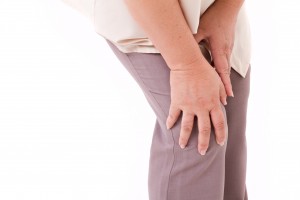

 Knee osteoarthritis pain relief with placebo has been found to be more effective than painkillers like acetaminophen, suggests study.
Knee osteoarthritis pain relief with placebo has been found to be more effective than painkillers like acetaminophen, suggests study.
You probably stick to the usual remedy of taking a pain reliever with acetaminophen, the over-the-counter drug that’s often an alternative to aspirin. It can take hours to kick in and doesn’t last very long. So you end up opting out of activities, hobbies, and all the things you want to do – because your knees hurt.
There are a number of causes giving you grief. Direct injury to the knee, being overweight, arthritis, and gout can all lead to serious knee pain. Although it can affect people of all ages, the older we get, the more wear and tear occurs between our joints, causing the cartilage to deteriorate. Once the cartilage is gone, our bodies can’t reproduce it, making knee pain a chronic issue.
But if reaching for a pain reliever is your solution for problem knees, new research has uncovered that it may not be the best remedy.
The research out of Tufts University examined thousands of studies on various treatments for knee pain, including those containing acetaminophen (like in Tylenol), ibuprofen (an anti-inflammatory), and steroid injections, which are becoming more commonly prescribed.
Through their analysis, researchers compiled 137 studies involving 33,000 people with problem knees, likely much the same as yours.
The research, published in the Annals of Internal Medicine, revealed that just about every form of treatment was more effective in treating knee pain than using acetaminophen.
Even more surprising, injecting a saltwater placebo into the knee turned out to be the most effective course of action next to injecting steroids or a lubricant like hyaluronic acid – which replaces the thinning liquid that naturally occurs around the joints to keep them working smoothly.
The fluid or lubricant technique, known as viscosupplementation, provides immediate relief that can last up to four weeks.
Corticosteroid injections directly into the knee joint can help with relief for up to six months, but they have been linked to cartilage breakdown. Doctors will likely put a limit on the number of injections because of the risks, or consider other treatment.
The researchers did note that injecting saltwater in the knee could cause a placebo effect, which means it worked because patients believed the treatment would be effective. Mind over matter!
As mentioned, acetaminophen is an ingredient used mainly to relieve pain. It can be effective, but must be taken as prescribed and not overdosed. Taking too much can put you at risk for liver damage and symptoms like nausea, pain, loss of appetite, and itching.
Also, acetaminophen can interact with many other types of medications, increasing the risk.
With researchers clearly determining that acetaminophen is the least effective means for treating knee pain, you may want to seek out alternative options. I’m all for taking action – no one should suffer with debilitating pain – but I’m an advocate for drug alternatives, where possible.
Researchers from the study noted that nearly 40 percent of the American population over age 45, estimates show, have some level of knee osteoarthritis, a form of arthritis where the cartilage between the bones wears down. With such huge numbers at stake in an aging population, there is a growing need for effective treatment.
There are many natural remedies for people with knee osteoarthritis to ease pain and discomfort and increase mobility. For starters, physiotherapy treatments can help strengthen muscles around the joint and increase your range of motion.
Maintaining a healthy weight and exercising are also crucial to alleviate pressure on the knee joints. Swimming and cycling are good choices because they are easy on the knees.
Shoe insoles or orthotics can also help support the joints and relieve added pressure. Other options acupuncture, yoga, and tai chi.
When it comes to managing knee pain, know that you have options. Reaching for acetaminophen pills does not have to be one of them. Speak with your doctor or naturopath for alternative options so you can improve your mobility and get back to enjoying the good things.
Copyright © www.orthopaedics.win Bone Health All Rights Reserved